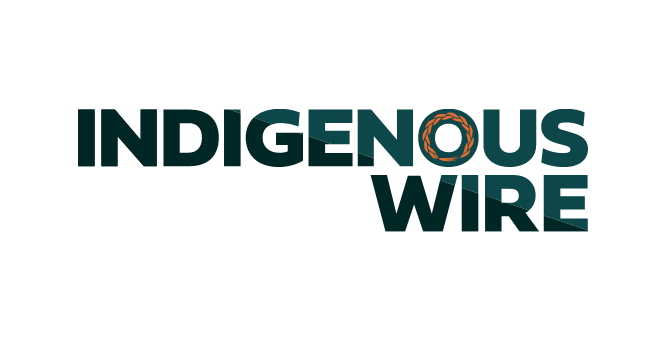Welcome to Indigenous Wire, a newsletter, blog, and community focused on Indigenous policy, politics, media, economics and sovereignty, founded and edited by journalist and writer Rob Capriccioso.
An award-winning D.C.-based journalist and writer with over two decades of reporting and editing experience, Rob was previously the longtime D.C. Bureau Chief at Indian Country Today, the Senior Editor at Tribal Business News, a Contributing Writer at American Indian Report and News from Indian Country, and he’s reported for numerous other Native-focused publications. His mainstream media contributions include reporting, analysis and special projects for PBS, NPR, Smithsonian Magazine, The New York Times, The New York Post, The Guardian, TMZ, Campaigns & Elections, Forbes, Politico, Inside Higher Ed and more.
Rob is an enrolled citizen of the Sault Tribe of Chippewa Indians who grew up in the Bahweting region of the Upper Peninsula of Michigan. His mother worked for the tribe in various health-related positions, and his father was an economic and legal advisor for the tribe. He interned at the tribe’s court while successfully pursuing dual political science and psychology undergraduate degrees at the University of Michigan, and he previously worked at the American Indian Higher Education Consortium in federal relations and has served on the board of the Native American Journalists Association.
Follow him on Twitter @RobCapriccioso and on LinkedIn and on Threads.
Email him at rob@indigenouswire.com.
A note from Rob on why to subscribe:
Simply put, coverage of Indigenous policy, political, media, economic and sovereignty news in the mainstream press is atrocious. I should know. As one of the very few Native writers contributing to the mainstream, we often have to explain why deeper stories in Indian Country are newsworthy, and then editors with a lack of awareness — even well-intentioned editors (not to mention ones with their own biases) — tend to dumb the articles down to the point where the nuance and the real gist of the story are lost. Natives haven’t had a ton of support in getting into top journalistic positions in mainstream newsrooms, which could alleviate the problem to some extent, but that doesn’t seem to be happening in my lifetime.
America (and the world) has ended up not knowing our stories, not understanding the unique political standing of tribes and Native citizens, and we all live in spaces where people (including many policymakers, even some who are tribal citizens) don’t understand tribal sovereignty. People generally don’t know that Indians are in the Constitution, or that tribal-federal treaties are alive and kicking. Not only are there 574 federally-recognized tribes, there are also dozens of others fighting for recognition as they face major economic, health, enrollment and equity obstacles. As a result, some people really and truly believe they are honoring Natives by using offensive names, and many people’s deepest connection to Natives is when they make a pilgrimage to a tribally-owned casino.
On the flip side, some want to know “Indianness” so badly that they fabricate their own connections to Indian Country, from participation in New Age wanna-be-ism to faking being enrolled to dressing up as Indian princesses and noble warriors for Halloween. Genetic testing has complicated matters, because some people do have Native blood but have never been connected to their communities, so they are lost and do not know how to be found (and there’s no one-size-fits-all solution). At the same time, ironically, some Natives have been disenrolled from their tribes, often based on some arbitrary injustice or another, and they desperately seek reconnection.
Coverage of Indigenous news in the egregiously small American Indian press — the press operated by Natives themselves — is also suffering. There’s little money to do it, and some of the places that are doing so appear to be caught in a Catch-22 of wanting to celebrate Indian Country while also seriously covering problems facing it. Many times those two goals collide, and it seems that celebrating usually ends up winning out over going for the deeper story. Advocacy — not journalism — is the product, and it’s that product that currently tends to receive the most likes on Twitter. It’s a big problem, and it gives non-Native journalists who don’t understand the complexities and who haven’t studied Indian history the leeway to report and own our most difficult stories from their sometimes biased, ignorant and/or rose-colored perches.
Natives indeed need strong advocates, but Indian Country has A LOT of advocates — look at the many protests that have put our issues at the forefront over the centuries since contact. Also look at the current generation of Indian lawyers and lobbyists who are buzzing all around D.C., looking to make both good trouble, and, in a lesser amount of cases, bad trouble, depending on one’s perspective. In all cases, their agendas are complex, and they need to be scrutinized.
What we don’t have a lot of are journalists. We need more Native journalists telling difficult stories that aren’t being told by the mainstream. We need to be investigating and pressing the federal, state, local and tribal leaders who hold the purse strings and make the deals. We need to push for inclusion, to push for interviews, to push for everything needed to tell the most challenging stories. We need to analyze the news, in the service of both tribal and non-tribal citizens, so we don’t perpetuate the dangerous ignorance that has resulted from the status quo.
It isn’t easy. There are many power brokers in and around tribal politics, just as there are power brokers in every political realm. And the power brokers want to control the narrative — and some truly and naively believe they can do so.
Federal legislators who conduct Indian-based legislative backroom deals are loath to talk on the record about their machinations; they often obfuscate, and it’s hard to sort out their potential deceptions and conflicts of interest. Meanwhile, the lobbyists that wealthy tribes can afford to hire do not want their connections exposed. They do not want Native journalists mucking up their plans by asking too many questions. Tribal leaders often feel like they have to be quiet, too, because lobbyists or advocates convince them it’s in their best interests. Federal folks will sometimes use tribal leaders as metaphorical shields for why they vote a certain way, or for why they can’t express a position, and tribal folks will sometimes do vice versa, for their own reasons. It’s a plagued system, and more and better Native journalism can only help to disinfect it.
In covering Indian Country for over two decades, it has been my experience that when people talk out loud, they get the most results. Being quiet is not in the best interests of tribes and Indigenous people. It never has been.
My toughest articles on issues like legal battles surrounding the $3.4 billion Cobell settlement, mismanaged federal-tribal health contracts, environmental shenanigans and the Treasury Department mucking up approximately $30 billion in pandemic relief to tribes have been the most important ones. The sources for those stories spoke truth to power. They told difficult, nuanced stories that increased everyone’s understanding, while sometimes celebrating Native America along the way, if called for, but while also being relentlessly tough.
In telling some stories, bridges may be burned (not ideally and not usually, but it does happen, especially in a system where celebration has been ingrained over scrutiny). But other paths do turn up. Indigenous stories, like Indigenous people, are resilient.
Indigenous Wire aims to be resilient, too. We will be sharp; we will provide solid reporting and analysis. We will try our best to connect the dots. We will focus on Indigenous policy, politics, media, economics and sovereignty, because that’s what interests us. Indigenous culture is another huge interest, but so many other places cover it somewhat well because it tends to be an easier area to cover. Not a less important area, but easier because more people feel free to talk without fear. We will cover it, too, but in ways you might not see at other outlets. Native culture intersects in so many ways with politics and policy, but those aren’t the stories you most often see reported. Those are the stories we will cover here.
You will hopefully be here, too, helping us, by subscribing, by sending in tips, by being more forthcoming when we ask you for an interview, or when we ask you to explain an issue. Try to stop thinking you can control the narrative. It isn’t helping anyone. By jumping into the comments sections, forming an improved, respectful understanding, you will add to the knowledge that has been missing in the mainstream and watered down at some Native places. You will be strengthening all of our Indigenous Wire.
Chi miigwetch (a big thank you) for connecting.
Rob Capriccioso
Founder and Editor, Indigenous Wire
Indigenous Wire is a 100% Native-owned publication. Subscribers won’t have to worry about missing anything. Every new edition of the newsletter and blog go directly to your inbox and app if you download it, and you can visit us here on the website anytime.
Apple users can also access us on the Substack app. Android version of the app is up and running, too.
Native-focused news outlets should contact us about the opportunity to publish, with permission, one free article from the newsletter and blog each week.
Learn more about the company that provides the tech for this newsletter and blog at Substack.




